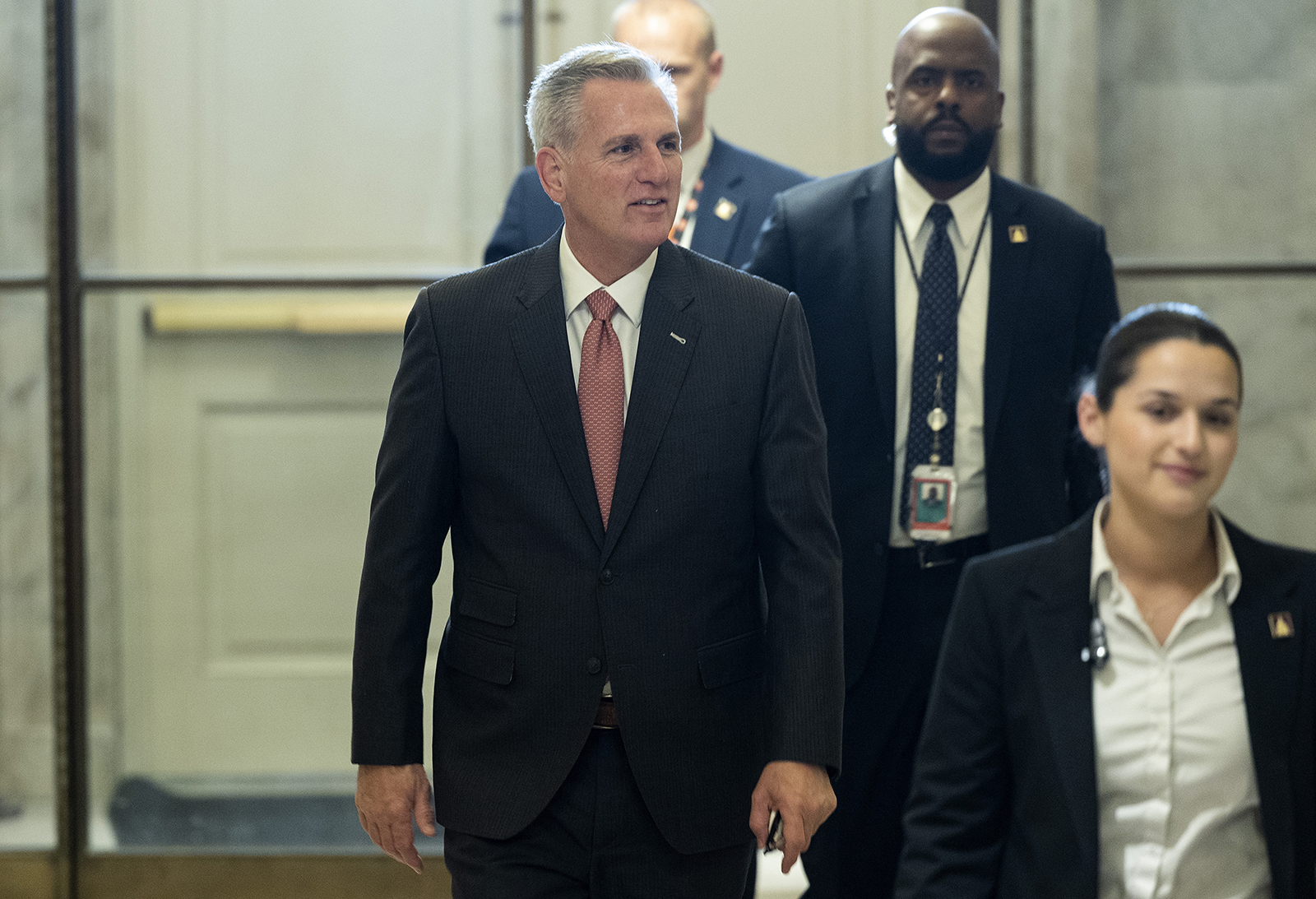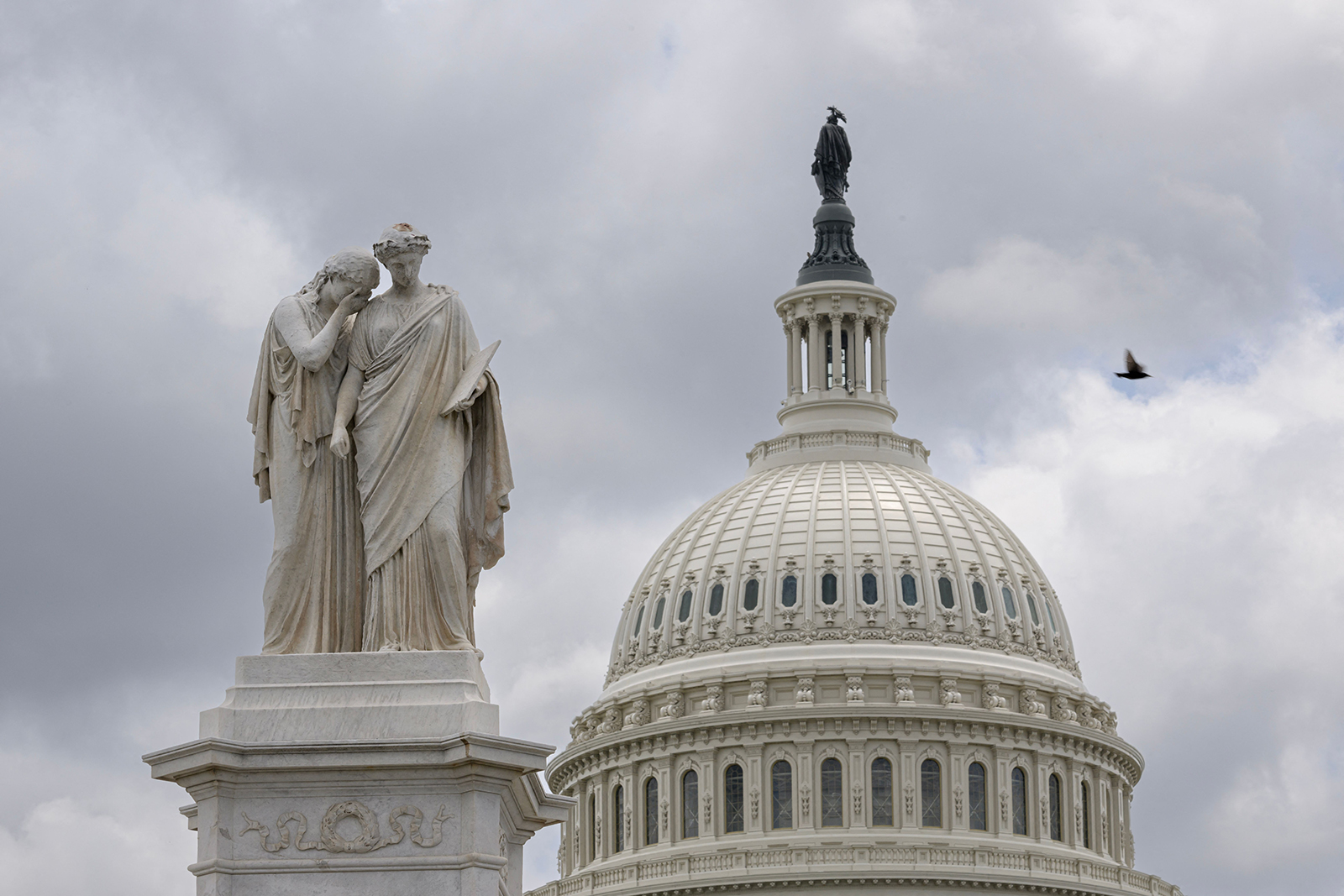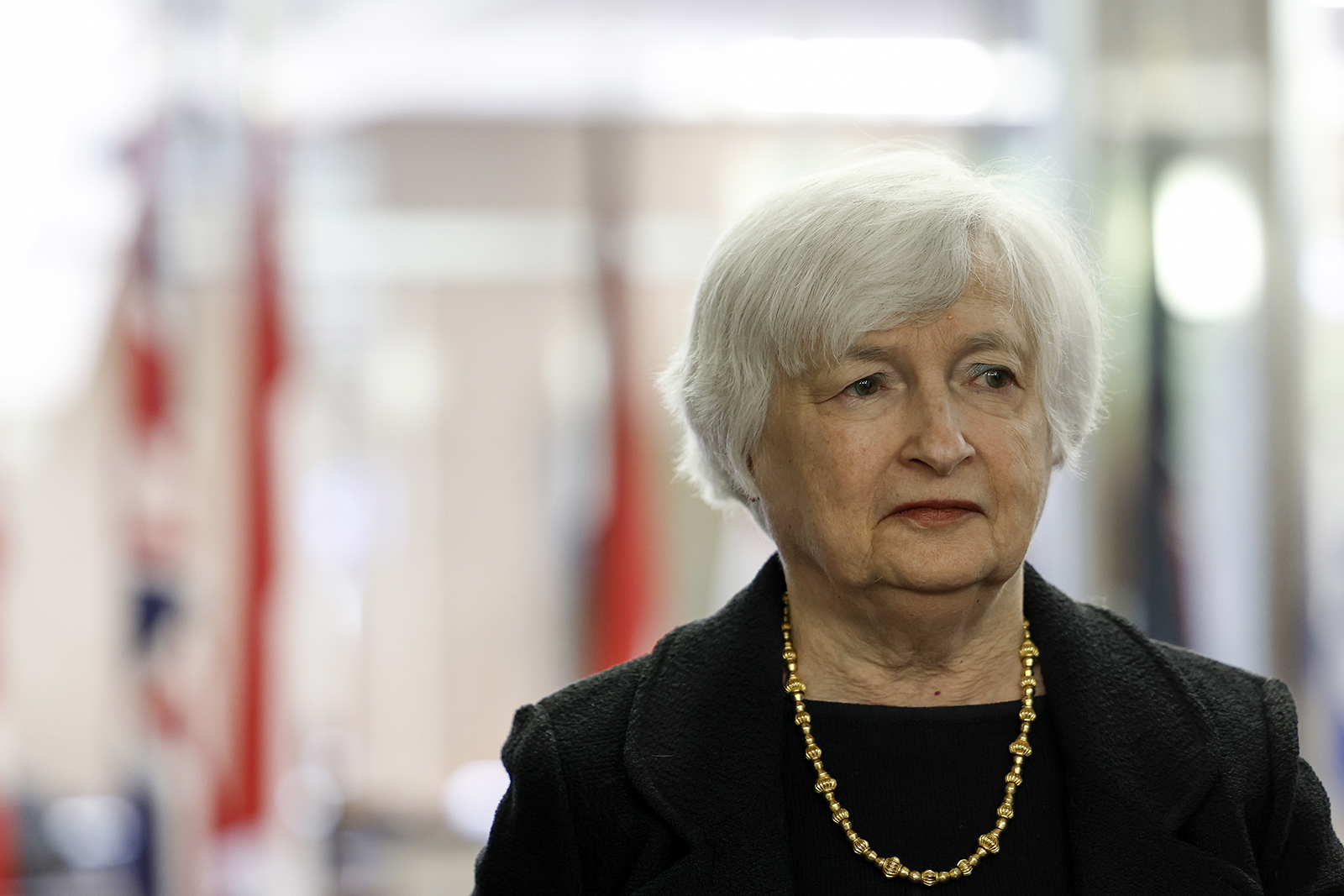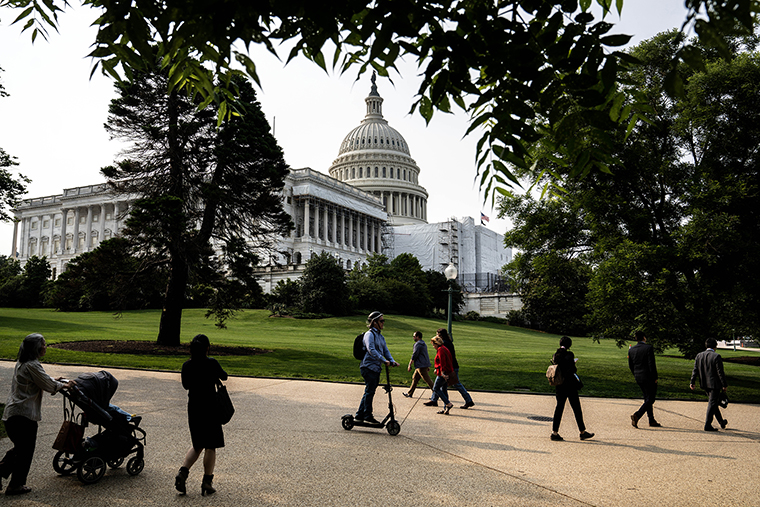
House Speaker Kevin McCarthy said negotiators worked late into the night and are inching closer to a potential debt ceiling deal.
"We worked well past midnight last night and yesterday ... was a very good day. I thought we made some progress. There's still some outstanding issues, and I've directed our teams to work 24/7 to try to solve this problem," McCarthy told reporters Thursday morning on Capitol Hill.
In a separate interview on Fox News also this morning, while McCarthy still expressed positivity about the negotiations, he said, “I don’t know if we will have a deal today.”
“There’s still a number of items we have to get through,” he said in the interview. But when asked if that meant that a deal isn’t possible today, he said “any day is possible. I mean, it's very difficult for the Democrats to agree not to spend more next year than they spent this year.”
“This deal won't solve all the problems. The president took a lot of things off the table,” he said, insisting that his conference is “very united in this process.”
On the Hill, he reaffirmed that he believes the June 1 deadline is a real deadline, despite some allegations from conservatives that Treasury Secretary Janet Yellen is playing games with it.
Meanwhile, in the Fox interview, McCarthy brushed off that it would be an economic catastrophe if the date passes without a deal, saying “look, we know there's money coming in. We know there's ability to get things done.”
“Whoever the Treasury Secretary is, whatever they say the date is, I will take. But there's money that comes in every single day. You get to the 15th, a lot of money comes in,” he said.
McCarthy would not tell reporters about specific areas where there is agreement in negotiations, but CNN has reported that the two sides have agreed on recapturing unspent Covid-19 funds. Pushed by CNN on whether Democrats have agreed to spending less money next year, McCarthy wouldn't get into details but said if there is going to be a deal, they'll have to agree to that.
McCarthy was pressed on what impact the Fitch credit ratings agency's warning has had on the negotiations and if it makes him nervous about getting a deal sooner. McCarthy reiterated that is why he met with Biden and asked repeatedly to get back together.
"If you wait 97 days not to negotiate, you must never be concerned about that," he said of threat of downgrade.
Asked about the timeline for when this must be done, McCarthy said, "every hour matters."
"That's why we worked well past midnight last night. The team they have is very professional, very bright. They know where the differences are and we're gonna work 24/7," he reiterated.












